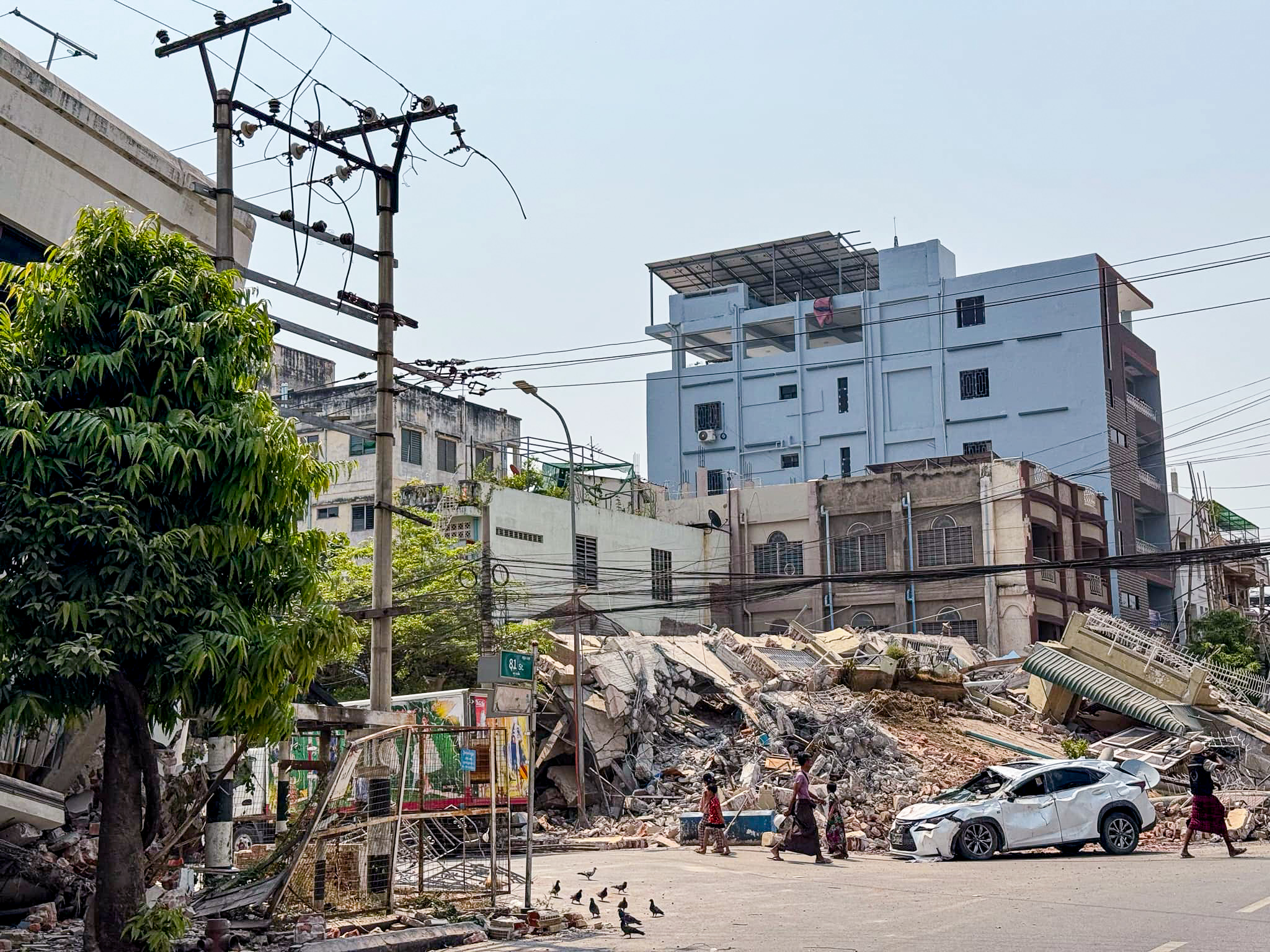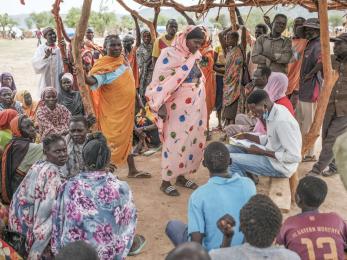Stronger together: Local partners provide critical aid in Ukraine and beyond

Since the outset of the full-scale invasion of Ukraine in February 2022, Mercy Corps has partnered with more than 100 organisations across Ukraine, Poland, Moldova, and Romania to provide critical support for the many people affected by the conflict. Through our collective humanitarian response with local partners, we’re seeing how strong connections helped rebuild strong communities during a time of great upheaval.
As we approach a year and a half since the conflict displaced almost 14 million people, both internally and to neighbouring countries, we’re sharing the stories and work of some of the partner organisations who are providing vital aid to those affected by the conflict. From supporting communities who are further marginalised, like LGBTQ people and African students, to providing housing assistance and holiday gatherings, Mercy Corps has reached 1.2 million people in collaboration with our partners—and another 2.1 million people were reached through information campaigns. Read on below for a snapshot of the hardworking local organisations and their continued efforts to provide for urgent needs and long-term support.

For 20 years, Alliance Global has advocated for human rights and offered critical services for LGBTQ communities in Ukraine. Beginning in 2022, in partnership with Mercy Corps, Alliance Global opened four shelters for LBGTQ people and their families who had been internally displaced by the conflict. The organisation continues to host information sharing events, advocate for more legal protection for LGBTQ people, and provide cash assistance for internally displaced people and those living near sites with active conflict.
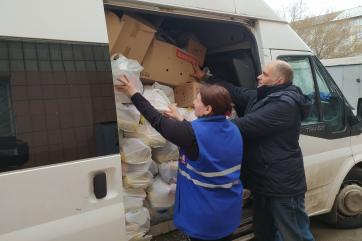
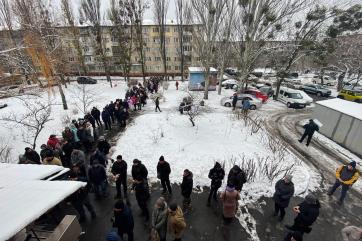
The best moments are the result of our work: the smiles and happy eyes of the participants.
Caritas Kyiv, Mercy Corps partner
Since February 2022, Caritas Kyiv has launched programmes providing essential supplies like food, hygiene and medical kits, and clothing; cash assistance for renting and repairing housing, and personal needs; temporary housing; and mental health support to more than 200,000 people.

Barka has been supporting communities in Poland and abroad for 33 years. At the outset of the full-scale invasion in Ukraine, Barka provided emergency support to their neighbours as they arrived across the eastern border by delivering meals, supplies, and financial resources to makeshift welcome centres. Barka began to offer more long-term support as the conflict waged on and the Ukrainian community grew in Poland. Through their partnership with Mercy Corps, Barka explained their mission: “We wanted each and every activity that we undertake to be a step of building bridges between various environments and social groups that together form a local community.”
In addition to arranging logistical aid like mental health and legal support, translations, Polish language lessons, job counseling, and doctors visits, Barka created community. Barka organised lakeside camps for children and their mothers and holiday dinners on Easter and Christmas Eve. As Tomasz Sadowski, the founder of Barka said, “We do not only provide services here. We bear witness with our lives.”
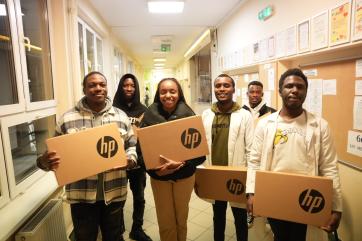
It has been a true testament to witness the resilience of those who attend our programmes.
NoirUnited International, Mercy Corps partner
NoirUnited International is working with African students and families fleeing the conflict. “Displaced third-country nationals involved with NoirUnited International have shared feelings of isolation, stress, and vulnerability following their evacuation from Ukraine,” NoirUnited International reported. “Their encounters with blatant racism only exacerbate the stress caused by witnessing armed conflict.” Organisations like NoirUnited International are vital to serving all communities who have been affected by the crisis in Ukraine. During Mercy Corps partnership with NoirUnited, which concluded in early 2023, the organisation supported more than 150 participants in Poland by providing housing assistance and hosting mental health events to making sure students have continued access to technology like laptops, tablets, and phones.
We knew our place was at the border among the fleeing Ukrainians.
Dobra Fabryka, Polish organisation
During the first weeks of the full-scale invasion, Dobra Fabryka was on all-night duty as one of the first Polish organisations at the Ukrainian border. Since then, the Mercy Corps partner has continued to organise shipments of essential supplies to Ukraine and delivered medical equipment to hospitals serving patients from the front line in Odessa, Kramatorsk, and Lviv. Dobra Fabryka provides aid to many places in Ukraine due to its many trusted contacts in local communities.

Salam Lab has worked to ensure people fleeing Ukraine have access to shelter in Kraków. Since 2022, Salam Lab has offered housing assistance and access to information to more than 58,000 refugees, with support from Mercy Corps. With many shelters downscaling and organisations making reductions to their humanitarian response, this service has become more crucial. Salam Lab continues to assist those who have been in Poland for the past year as well as welcome refugees who arrive in Poland directly from shelled cities of Ukraine. “Even if the war were to end tomorrow, there would still be a large population of refugees in Krakow who require assistance, access to information, and integration services,” Salam Lab stated. “Therefore, we are determined to keep providing help and support to refugees in need.”

Vira Nadiya Lyubov (Faith, Hope, Love), in partnership with Mercy Corps, expanded their services and work across Eastern Ukraine when the full-scale invasion began in 2022 to help more than 6,000 internally displaced people. The organisation has grown rapidly, now with over 100 staff, delivering essential supplies and services like launching a health centre and assisting the elderly, people with disabilities, and people living with HIV. The organisation's latest project is to arrange for cash assistance to IDPs from Mercy Corps and to conduct trainings on business grants to internally displaced entrepreneurs.

